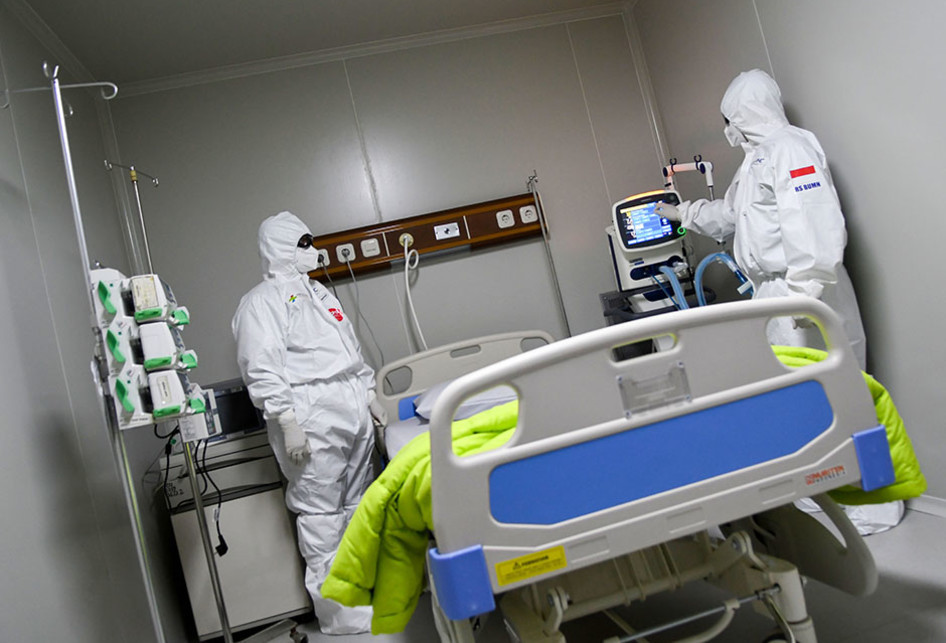Popular Reads
Top Results
Can't find what you're looking for?
View all search resultsPopular Reads
Top Results
Can't find what you're looking for?
View all search resultsMost Indonesians concerned about overcapacity at health facilities during pandemic: Survey
"Of the 1,100 respondents, 88.4 percent said they were afraid that medical facilities could not accommodate those who were sick," Nila Ardhianie, the director of the Amrta Institute, said in an online press conference on Monday.
Change text size
Gift Premium Articles
to Anyone
A
recent survey conducted by several NGOs suggests that the vast majority of Indonesians are concerned about overcapacity at medical facilities during the COVID-19 pandemic.
The NGOs are Amrta Institute, Lokataru Foundation, Indonesian Legal Aid Foundation (YLBHI), Jakarta Legal Aid Institute (LBH Jakarta) and Rujak Center for Urban Studies.
"Of the 1,100 respondents, 88.4 percent said they were afraid that medical facilities could not accommodate those who were sick," Nila Ardhianie, the director of the Amrta Institute, said in an online press conference on Monday.
Nila explained that this concern stemmed from the fact that the government had not conducted enough testing for COVID-19.
"Indonesia has a very low testing rate compared to other countries, even in Southeast Asia. Singapore and Brunei have tested around 3 percent of their population, while Indonesia has tested less than 0.1 percent, 0.0318 percent to be exact," she said.
Read also: COVID-19 pandemic exposes problems in our health care, Jokowi says
The lack of testing has made the public wary that the real number of COVID-19 cases in the country is much larger than the data published by the government.
"At the moment we can only test around 3,000 specimens a day. This means we need around three months just to test all of our patients under surveillance and people being monitored," she said.
"Another impact of the lack of tests is that people with the coronavirus are not aware that they have been infected so they still travel around freely and transmit the disease to other people."
According to Nila, respondents of the survey had expressed hope that the government could carry out more tests and move swiftly to handle the COVID-19 outbreak.
"The data show that respondents wished the government could carry out more tests, give transparent and consistent information about COVID-19 patients, including their contact tracing. They also hoped the government could be more strict in imposing the mudik [mass exodus] ban and even advise lockdowns in red zones," she said.
Read also: Non-coronavirus patients grow wary as hospital crisis looms
The respondents, she said, also wanted the government to immediately deliver social aid to affected families.
"The economic impact of the pandemic has also become a huge concern for the respondents. Thirty three percent of the respondents who rented houses said they had begun to struggle to pay the rent. Seventeen percent of respondents also said they had been laid off from their jobs," said Nila.










